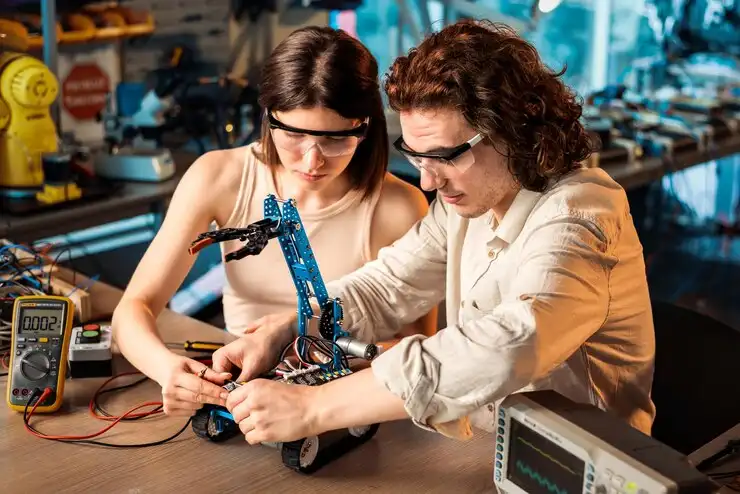
Blog
Developing Your Soldering Skills for Electronics Projects

In the field of electronics, the ability to solder is essential for creating safe connections between circuit boards and component parts. The success of your electronic projects depends on how well you can solder, regardless of your level of experience as a hobbyist. We will explore the fundamentals of soldering in this extensive guide and provide insightful advice to help you improve your soldering abilities..
Gratitude Soldering.
The process of uniting two metal surfaces with solder, a low-melting-point filler, is known as soldering. In order for electronic circuits to function, this forms a strong, conductive link. In electronics assembly, maintenance, and prototyping, soldering is widely used to connect parts like integrated circuits, resistors, and capacitors to printed circuit boards (PCBs).
Crucial Equipment and Supplies.
Prior to starting your soldering project, make sure you have the following supplies and tools:
• Soldering Iron: Used to melt solder, a soldering iron is a portable instrument with a heated metal tip. For more accurate control, choose a soldering iron with temperature settings that can be adjusted
• Solder: Solder is an alloy of metals, usually made of lead (or lead-free substitutes) and tin. Because it effectively fluxes, rosin-core solder, which has a flux core, is frequently used for electronics soldering
• Soldering Station: Featuring features like temperature control, a soldering iron holder, and a cleaning sponge, a soldering station offers a sturdy surface for your soldering iron
• Flux: Flux is a chemical cleaner that removes oxides from metal surfaces and makes soldering easier. It can be purchased in liquid, paste, or pen form
• Desoldering Tools: To remove excess solder or fix soldering faults, a desoldering wick or a desoldering pump are essential
Fundamental Soldering Methods.
1. Tinning the Soldering Iron: Begin by tinning the tip of the solder iron by applying a thin layer of solder to it. Tip oxidation is avoided and heat transfer is improved by this procedure
2. Component Preparation: To get the best soldering results, make sure the components and PCB pads are clean and clear of impurities
3. Applying Heat: Ensure that the soldering iron tip is positioned at the connection that has to be soldered so that it can uniformly heat the PCB pad and the component lead
4. Feeding Solder: When the junction is at the proper temperature, carefully pour solder into it, making sure it flows evenly and smoothly
5. Soldering Motion: Make sure the solder flows around the joint and produces a strong connection without having too much solder accumulation by using a steady soldering motion
6. Examining Joints: After soldering, thoroughly examine joints to make sure that fillet development and enough wetting have occurred, guaranteeing strong connections
Advanced Soldering Tips to Get Better.
• Develop Your Patience: Both patience and practice are necessary for proficient soldering. Set aside time to hone your abilities and progressively take on more complex tasks
• Temperature Control: Keep the soldering iron at the ideal temperature; too much heat might harm components or PCBs
• Tidiness is key: To avoid oxidation and guarantee effective heat transfer, wipe the tip of your soldering iron with a moist sponge or brass wire cleaner on a regular basis
•Why Invest in High-Quality Tools: Long-term performance, durability, and safety are enhanced by high-quality soldering tools, which may require a larger initial investment
In summary.
Anyone interested in doing electronics projects needs to become proficient in soldering procedures. You may attain professional-quality soldering results and confidently take on fascinating electronic projects by knowing the basics of soldering, arming yourself with the necessary equipment and supplies, and practicing proper procedures. Recall that soldering is an art as well as a science, so enjoy the process of learning and improving your soldering abilities!
4 Comments
Leave a Reply














Noah
Thanks for the fantastic ideas!
James
Thanks for the great tips overall.
Charles
Keep up the great work!.
Marie Johnson
Thank you for the detailed tutorial and creative ideas!